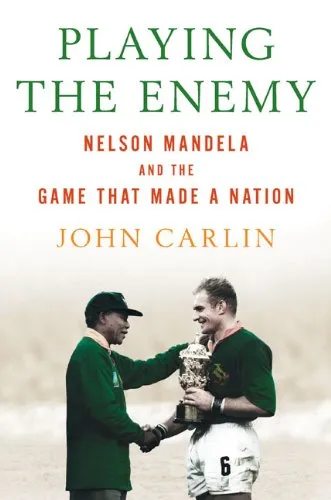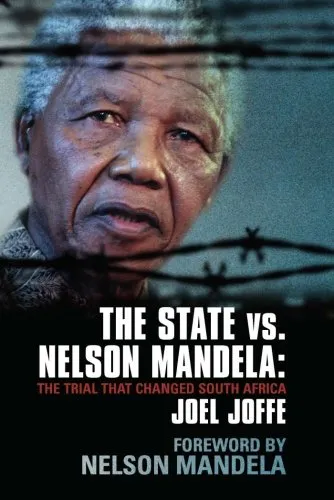Playing the Enemy: Nelson Mandela and the Game That Made a Nation
5.0
Reviews from our users

You Can Ask your questions from this book's AI after Login
Each download or ask from book AI costs 2 points. To earn more free points, please visit the Points Guide Page and complete some valuable actions.Related Refrences:
Detailed Introduction to "Playing the Enemy: Nelson Mandela and the Game That Made a Nation"
Set against the backdrop of a country divided by race and politics, "Playing the Enemy: Nelson Mandela and the Game That Made a Nation" by John Carlin is a captivating account of how sports can transcend barriers and unite even the most divided societies.
Detailed Summary of the Book
In "Playing the Enemy," John Carlin tells the miraculous story of how Nelson Mandela used the 1995 Rugby World Cup to bring together a nation on the brink of civil conflict. Post-apartheid South Africa was a country trying to redefine itself, still grappling with years of racial segregation and economic disparity. Nelson Mandela, having been released from prison after 27 years, became the first black president of South Africa. Understanding the emotional and symbolic power of sport, Mandela saw an opportunity with rugby, long considered a "white" sport in South Africa, to foster national unity.
The story pivots around Mandela's strategic and charismatic leadership in rallying both white and black South Africans around the national rugby team, the Springboks. Leading up to the World Cup, Mandela met with rugby officials, players, and South Africans from various communities to emphasize national solidarity. Carlin paints an emotional portrait of the final match between South Africa and New Zealand, where Mandela, wearing a Springbok jersey, handed the Webb Ellis Cup to Springbok captain Francois Pienaar. This image became an everlasting symbol of reconciliation and unity, illustrating sport's profound influence on political and social landscapes.
Key Takeaways
The book provides several lessons on leadership, reconciliation, and the power of sport. Most notably, it emphasizes:
- How strategic gestures and symbolism in leadership can foster unity in divided societies.
- The importance of understanding and respecting cultural significance in unifying people.
- The role sports can play as a catalyst for healing and change in a fractured country.
- Nelson Mandela's unique ability to inspire and connect with people from all walks of life.
Famous Quotes from the Book
Here are some powerful quotes from the book that encapsulate its essence:
"Sport has the power to change the world. It has the power to inspire. It has the power to unite people in a way that little else does."
"What fascinated Mandela about rugby was the power it wielded over the imagination of white South Africans."
Why This Book Matters
"Playing the Enemy" is much more than a sports book; it is a testament to human resilience, reconciliation, and the indomitable spirit of leadership. Carlin's book captures a pivotal moment in South African history where sports served as the unexpected yet powerful driver of national unity. It shows how Mandela's visionary leadership transcended the political realm and tapped into the emotional fabric of the nation, encouraging dialogue around reconciliation and healing.
Moreover, the book is an inspiring case study for leaders, historians, and individuals interested in the power dynamics of sports, showcasing how influence and tenacity can drive profound social change. Its relevance transcends its immediate context, offering contemporary leaders valuable insights into leveraging common interests for the greater good.
Free Direct Download
Get Free Access to Download this and other Thousands of Books (Join Now)
For read this book you need EPUB Reader Software like Thorium Reader
Accessing books through legal platforms and public libraries not only supports the rights of authors and publishers but also contributes to the sustainability of reading culture. Before downloading, please take a moment to consider these options.
Find this book on other platforms:
WorldCat helps you find books in libraries worldwide.
See ratings, reviews, and discussions on Goodreads.
Find and buy rare or used books on AbeBooks.



